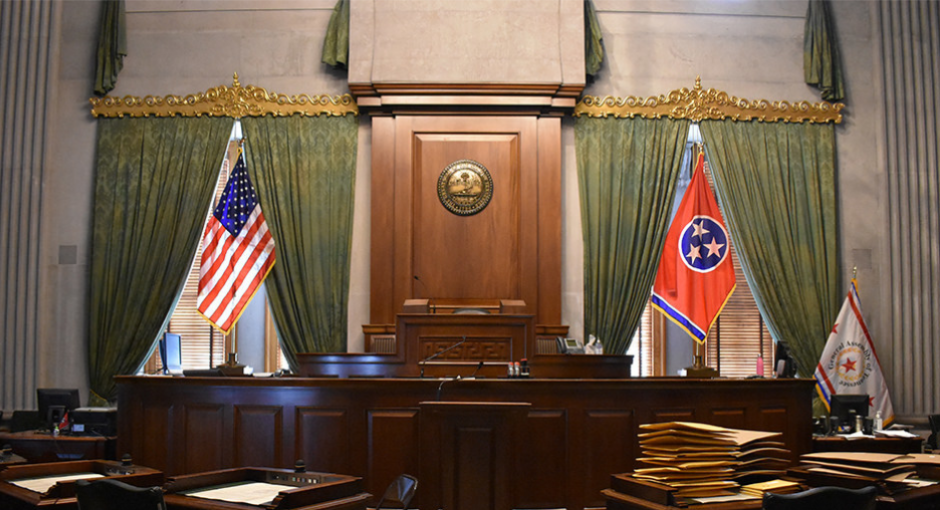At least six states have introduced or passed bills in recent weeks that would forbid pharmacy benefit managers from discriminating against 340B covered entities regarding reimbursements and other practices.
The bills range from 340B-specific legislation to broader bills to address what is perceived by lawmakers as unfair PBM conduct.
Tennessee’s Senate Bill 1205/House Bill 1348 is just two pages long. It addresses only the 340B program and its participants, as does Michigan’s HB 4351. Kansas’ SB 128/HB 2260 is also only two pages long, but contains not only a non-discrimination clause for covered entities but also bars any additional fees or chargebacks or locking out covered entities from provider networks.
Indiana’s HB 1393 specifically bars contract language between PBMs and covered entities that permits below-average payments or additional fees, or “any provision that prevents or interferes” with an individual’s decision to fill their prescription at a 340B pharmacy.
Nebraska’s LB 270 is more extensive, addressing not only discrimination against 340B covered entities, but practices such as spread pricing and penalizing pharmacies for sharing pricing information with patients and caregivers.
Hawaii’s SB 602 is constructed along similar lines, barring not only 340B price discrimination but capping reimbursements to all pharmacies based on a maximum allowable cost basis. It would also prohibit PBMs from “engaging in unfair methods of competition or unfair practices.”
All of those bills continue to be debated or are in committees. Only Utah’s SB 0140 passed both chambers, which occurred last week. It specifically bars discrimination against federally qualified health centers that are 340B participants. Although it passed both the House and Senate without a single nay vote, it is unknown if Gov. Spencer Cox will sign it into law. Utah passed a law last year barring 340B discrimination against pharmacies in general.
Colleen Meiman, national policy advisor for the state and regional associations of community health centers, suggested that the Utah bill may have been introduced in reaction to rules introduced by Express Scripts that require pharmacies in its network to identify previously submitted claims that are 340B-eligible and submit them to match National Council for Prescription Drug Program Standards within 10 business days. That rule went into effect on March 1.
According to Meiman, the Association for Utah Community Health (AUCH), the state’s primary lobby for federally qualified health centers and community clinics, obtained an opinion from Express Scripts that if such a law was enacted its new policy would no longer apply. Spokespersons from both AUCH and Express Scripts did not respond to requests seeking comment.
As for the other bills, Meiman and other observers say they are in reaction to recent tactics adopted by PBMs. “They’ve become very, very aggressive in the past couple of years,” said Peggy Tighe, principal with the law firm of Powers Pyles Sutter & Verville in Washington, D.C. (a 340B Report sponsor) and counsel to Ryan White Clinics for 340B Access (RWC-340B), a national advocacy group representing HIV/AIDS clinics and service providers.
Among the practices that have been recently adopted by PBMs: Requiring covered entities to be bound to contact terms that aren’t disclosed at signing but are included in policy manuals, or finding ways to cut them out of preferred provider networks, subjecting patients with private insurance to co-payments and other fees that may prompt them to seek another pharmacy.
Making it more difficult for covered entities to obtain drugs at 340B rates also confers another advantage to PBMs: If they can lock drugs out of the program, they can claim rebates from the manufacturers.
“I call this ‘pickpocketing,’” Meiman said. “They are constantly exploring ways to get the (program savings) from us to them.”
Tighe believes that the PBMs are taking advantage of safety net providers’ focus on fighting the COVID-19 pandemic; the previous administration’s inaction to defend the 340B program; and the current leadership vacuum while the new administration gets up and running.
Absent a federal anti-discrimination bill, there will be an ongoing battle in statehouses to try and rein in PBMs, according to Meiman. “They come up with some creative way to block 340B or prohibit the program, and you have to crack down on that,” she said. “I call it an endless game of whack-a-mole.”


